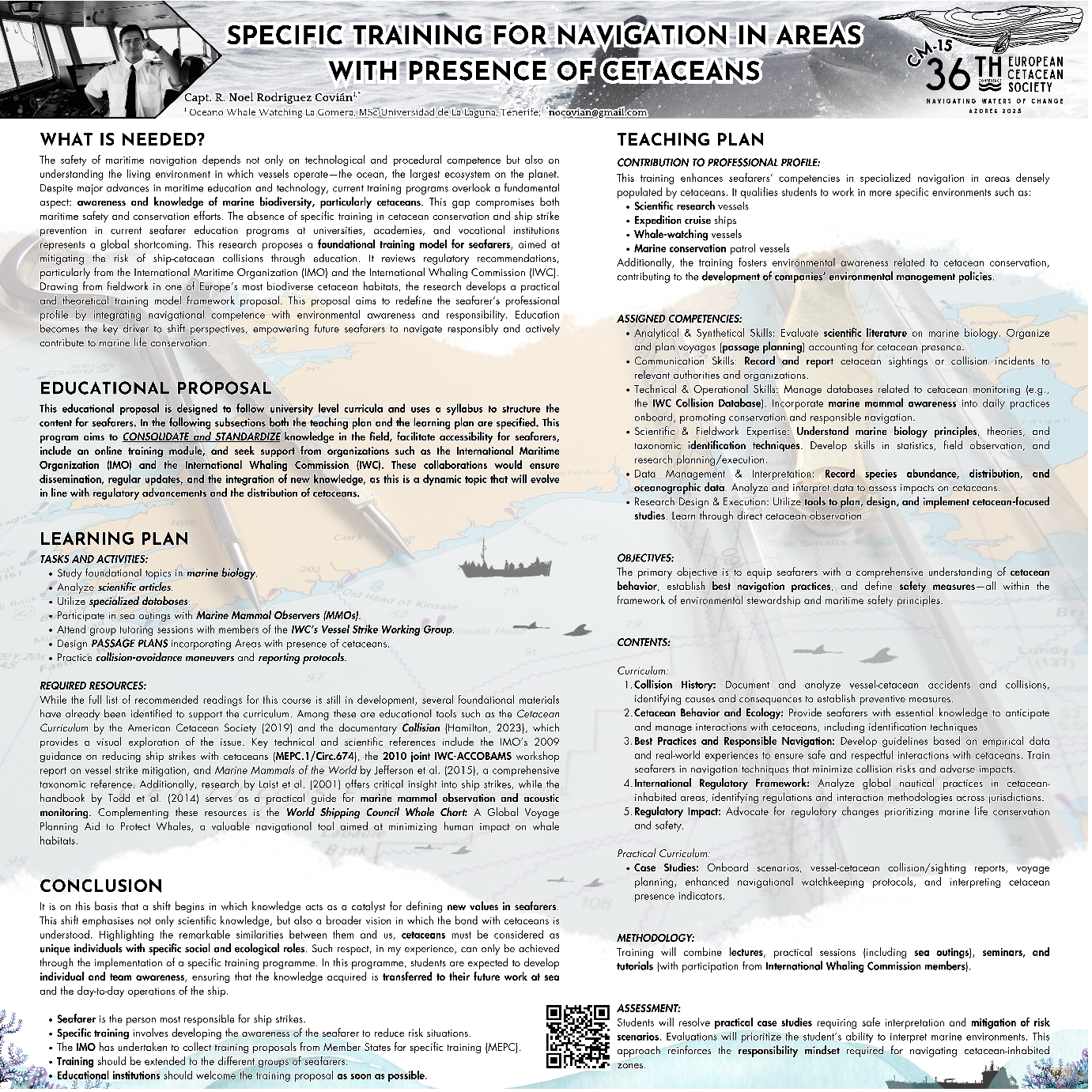Maritime Bildung
Für eine verantwortungsvolle maritime Bildung zum Schutz der Meere
Anfang Mai veröffentlichte Kapitän Noel Covian, Mitglied unserer Partnerorganisation OCEANO, einen Artikel im Journal of Maritime Research, der sich einem kritischen Thema widmet: Schiffskollisionen mit Walen und Delfinen – ein Bereich, der MEER e.V. weiterhin große Sorgen bereitet. Der Artikel mit dem Titel „Specific Training for Navigation in Areas with the Presence of Cetaceans“ hebt eine gravierende Lücke in der maritimen Ausbildung hervor: das fehlende Bewusstsein und die mangelnde Schulung von Seeleuten im Hinblick auf die marine Biodiversität, insbesondere Wale und Delfine. Diese Lücke gefährdet nicht nur den Artenschutz, sondern auch die Sicherheit in der Schifffahrt.
Der Artikel stellt einen detaillierten Trainingsplan vor, der Module zur Ökologie und zum Verhalten von Cetaceen, zu Identifikationstechniken, internationalen Regelwerken, verantwortungsvoller Navigation und zur Routenplanung umfasst – ergänzt durch praktische Übungen und Erfahrungen auf See. Für Covian beginnt ein echter und nachhaltiger Wandel in der maritimen Praxis mit einem Verantwortungsbewusstsein für die Umwelt bei denjenigen, die auf dem Meer tätig sind. Bei MEER e.V. unterstützen wir diese Vision uneingeschränkt. Seefahrer nicht nur als kompetente Navigatoren, sondern auch als bewusste Hüter der Ozeane auszubilden, ist entscheidend für den Schutz des marinen Lebens und für eine sichere Zukunft auf See.
Abstract des Artikels (auf Englisch):
The safety of maritime navigation depends not only on technological and procedural competence but also on understanding the living environment in which vessels operate—the ocean, the largest ecosystem on the planet. Despite major advances in maritime education and technology, current training programs overlook a fundamental aspect: awareness and knowledge of marine biodiversity, particularly cetaceans. This gap compromises both maritime safety and conservation efforts. The absence of specific training in cetacean conservation and ship strike prevention in current seafarer education programs at universities, academies, and vocational institutions represents a global shortcoming. This study proposes a foundational training model for seafarers aimed at mitigating the risk of ship- cetacean collisions through education. It reviews regulatory recommendations, particularly from the International Maritime Organization (IMO) and the International Whaling Commission (IWC). Drawing from fieldwork in one of Europe’s most biodiverse cetacean habitats, the research develops a practical and theoretical training model framework proposal. This proposal aims to redefine the seafarer’s professional profile by integrating navigational competence with environmental awareness and responsibility. Education becomes the key driver to shift perspectives, empowering future seafarers to navigate responsibly and actively contribute to marine life conservation. This article charts the course for a new generation of maritime professionals—skilled, conscious, and committed to the protection of cetaceans.
Ganzer Artikel: Specific Training for Navigation in Areas with the Presence of Cetaceans
